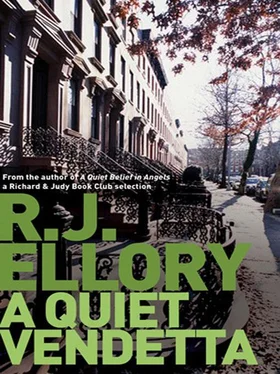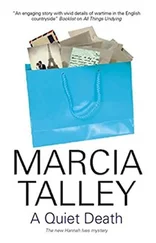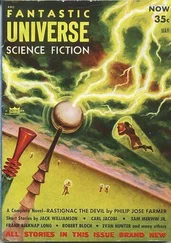Morning of the twenty-eighth he and Carol had a fight. It was nothing really, a stupid thing. She asked him to hoover the front room. He said he’d do it later. She asked him again after half an hour and he snapped back I said I’d do it later ! to which she replied It is later, Ray… all I’m asking for is ten minutes’ help keeping this goddamned place clean ! Ray got annoyed, there were a few more words, and then he left the house. Just put on his shoes and his jacket and left the house. Later, thinking back, he would wonder if his temper hadn’t already been frayed. That morning he’d received an e-mail from Visceglia asking if he could come in for a few hours the following day. He hadn’t replied, hadn’t wanted to reply, but knew that he would before the day was out. He had no choice. It was one of those kinds of jobs. It was a vocation, an undertaking, it wasn’t just a salary. Maybe that was what it was. Or maybe it was because he was still cut up about the little kid, a kid whose name he couldn’t get out of his mind, and how he’d lain there two nights after Christmas and all he’d been able to think about was the kid’s parents, about how this was a Christmas they would never forget. The dad had taken the Power Rangers Playset in the ambulance with him. Couldn’t take his son home, so he took the boy’s present from grandma. Wrapping paper had blood on it, paper was torn so you could see what was inside, and there was a narrow spray of blood right across it. Ray had wondered what the father would do with it. How could you keep something like that? What would the boy’s mother feel when she saw it? What would Ray say to her if she came and asked what he was going to do about the people who had killed her child?
Hindsight, the cruellest and most astute advisor of all, would be a rear-view mirror into which Ray Hartmann looked many times in the subsequent months. He’d stayed away from the house to cool down. This was a rare time, a number of consecutive days when they could be together as a family, and here he was acting like a spoiled child just because Carol had asked him to hoover. He decided to stop for a single beer at a bar three blocks from home. He lost track of time, he talked with the barman, he caught the tail-end of a game on the tube. He even played a couple of games of pool with a guy called Larry, and Larry bought him a beer, and then another, and it would have been nothing short of rude to decline the guy’s generosity, and hell it was Christmas, and what was the point of Christmas if you couldn’t have a good time?
Ray Hartmann stumbled through the front door of his house and crawled along the hallway a little after one a.m. Carol had waited up for him. So had Jessica. They were both dressed. It was then that he started hollering; it was then that he raised his fist and put it through the kitchen cupboard door. And when Carol pushed past him and he fell to the floor, when both his wife and his daughter started screaming at him, telling him to leave the house and never come back, it was all he could do to raise his bruised and bloodied hand in an effort to silence them. But he heard what they said, and he did leave, and he walked the seven blocks to the ER and got his hand cleaned and bandaged. That night was the end of one thing and the beginning of something else. He took the apartment in Little Italy, Carol and Jess stayed in Stuyvesant Town. That night marked the point at which Ray Hartmann had stopped drinking for life. He didn’t go to AA, he didn’t even do the first of the Minnesota Twelve Steps, he just decided, and it was perhaps the most certain and solid decision of his life. He’d held to that unrelentingly, and on the evening of Thursday 28 August, separated from his wife and daughter for eight months to the day, Ray Hartmann had been sober for every single one of those days, every single hour, every single minute. He had convinced himself there was a way to get his family back, and that way would be paved with sobriety, hard work, honesty and commitment.
That frame of mind had served him well at work, for work was where he’d buried himself, and his office, narrow and cramped though it was, each wall covered with a pinboard displaying photographs and maps and crime scene details, was where he would ordinarily be found, often late into the night, sometimes in the early hours of the morning.
Morning of Friday 29 August he took a call right there in that same office, at the very same desk.
‘Ray?’
‘Carol?’ In his voice was a tone of surprise, beneath that a sense of concern that something bad might have happened to prompt her call.
‘How you doing?’ she asked.
‘I’m okay, Carol, I’m okay. How’s Jess?’
‘She’s fine, Ray, just fine. She misses you, and that’s why I’m calling you.’
Ray was silent. He’d learned to speak when he was asked, and the rest of the time keep his asshole mouth shut.
‘Saturday, a week on Saturday, September sixth, you can come meet us in Tompkins Square Park at midday. We’re gonna have some lunch together and you can see Jess, okay?’
Ray Hartmann was struck dumb for a second.
‘Ray? You there?’
‘Yes, sure… sure I’m here. That’s great. Thanks. Thanks, Carol.’
‘You’re coming because of Jess, not because of me. I need more time. I’ve been grateful for the time I’ve had, and I’ve thought about a lot of things. If you and I are gonna make it then we have a number of things to work out. Right now all we’re doing is making a little time for Jess, you understand?’
‘Yes, sure I understand.’
‘So you be there, midday a week on Saturday, and if things go fine then maybe you and I will start talking about what we’re gonna do.’
‘Right, of course, of course.’
‘So we’ll see you then, okay?’
‘Okay, Carol… I’ll be there.’
And then she hung up, and Ray Hartmann sat there with the receiver burring in his ear, his eyes filled with tears, a kind of idiot grin on his face.
Still looked like that when Luca Visceglia opened the door of his office and stood there with an expression Ray Hartmann had seen all too many times.
New York District Attorney’s Office Administrative Annexe B, nine-sixteen a.m., morning of Friday 29 August, and back of Visceglia were three men in dark suits, white shirts, dark ties, and all of them wore that expression: an expression that told Hartmann that he was once again about to collide with the business end of things, though in that moment, lightheaded with the thought that his wife might talk to him again, he had no clue about what they were going to say, and where those words would take him. Whoever these people were they had found him, found him all too easily, it seemed; apparently he had been the only Ray Hartmann in the entirety of the federal employee database system in Washington, and that database had been only the second they had searched.
An hour later and all the colors would be different, the sounds and images too, and Ray Hartmann would be driving along Flatbush Avenue in a generic gray sedan towards the Brooklyn Navy Yard. There he would find a waiting helicopter that would carry him and three New York FBI field agents to the airport. A handful of hours and he would be home, home in New Orleans, and though New Orleans was the last place in the world he would ever have wanted to go, he had no choice in the matter.
The world had come looking for Ray Hartmann, it seemed, and the world had somehow found him.
Abused, disabused, rejected, forsworn to some sense of guilt, some sense of desperate self-reproach for the way in which these events had transpired, Ray Hartmann stood beside the window of a hotel.
Let the dead be buried , he thought. Let the dead be afforded whatever degree of respect they deserve, whether they be brother or mother or father, and if they deserve none then at least let them rest. Pax vobiscum .
Читать дальше







![Quiet Billie - Don't mistake the enemy [СИ]](/books/421973/quiet-billie-don-t-mistake-the-enemy-si-thumb.webp)




